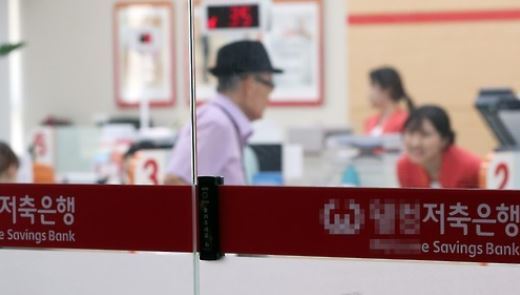Corporate lending extended by South Korea's nonbank financial institutions surged nearly 17 percent in the first half of the year amid tougher rules for household loans, central bank data showed Monday.
Outstanding corporate loans by local secondary financial institutions, including credit cooperatives and savings banks, came to 113.4 trillion won ($101 billion) as of the end of June, up 16.9 percent, or 16.4 trillion won, from end-2016, according to the data by the Bank of Korea.
The first-half amount is close to double the figure recorded during the same period a year earlier and marks the largest half-year tally since the central bank started to compile related data in 2013.
 |
(Yonhap) |
Experts attributed the jump in nonbank lenders' corporate loans to Seoul's toughening of regulations on consumer loans to curb household debt.
"The rapid increase appears to reflect the financial authorities' stricter rules for household lending," said Cho Young-moo, a researcher at the LG Economic Research Institute. "Lenders tend to shift their focus to the less-regulated sector."
South Korea's financial authorities have toughened regulations on financial institutions' household loans in a bid to rein in snowballing household debt.
The tougher rules have prompted lenders to ramp up efforts to expand lending to corporate borrowers, according to market watchers. In the January-June period, nonbank lenders' loans to households rose 13.6 trillion won, down from a 17.9 trillion-won surge during the same period last year.
South Korea's household debt stood at 1,360 trillion won at end-March, up from 1,343 trillion won a quarter earlier, which analysts say could become a huge drag on Asia's fourth-largest economy if left uncurbed. (Yonhap)








